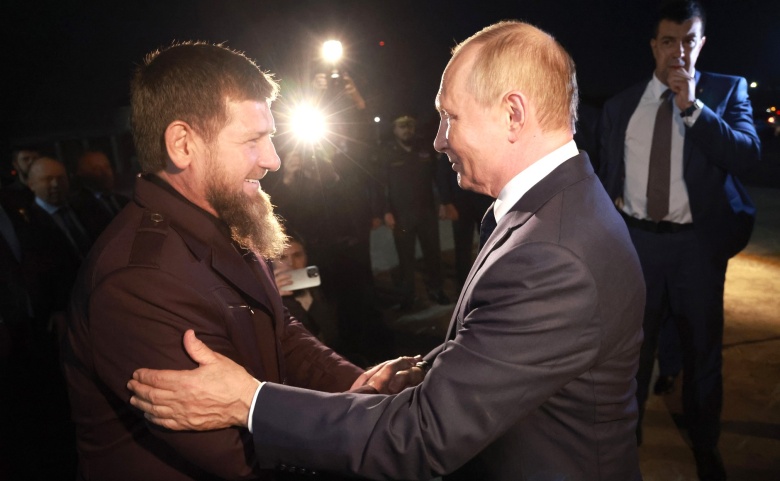Opinion: Baku could become venue for Ukraine negotiations
Ukraine peace talks in Azerbaijan
The war in Ukraine is nearing a stage where ceasefire talks may be possible. U.S. President-elect Donald Trump has met with Ukraine‘s president, and his representatives have engaged with Ukraine’s leadership. Meanwhile, Hungarian Prime Minister Viktor Orban, following his visit to Trump, has held discussions with Russian President Vladimir Putin.
- White House: new sanctions against those undermining democracy in Georgia coming in weeks
- What could push Baku to sign peace agreement with Armenia?
- Maximum conscription age in Azerbaijan to be lowered to 30
“It is clear that in the early days of his presidency, Trump will present his own formula for resolution and promote it through pressure tactics.”
This was suggested by analysts from the South Caucasus Research Center (CSSC). Azerbaijani experts also discussed potential mediation prospects and Baku’s role in achieving peace in Ukraine in their article.
“The military-political leadership of Ukraine and Russia are each presenting their own visions for a potential ceasefire, making maximal demands and expectations both from each other and third parties. For example, Ukraine’s expectations include NATO membership, while Moscow links a ceasefire to the reduction of sanctions against Russia.
It can be said that, at this moment, Trump’s team is organizing the negotiation agenda, determining the locations and formats for talks. Let’s consider the range of countries vying to host negotiations:
- Turkey – has experience organizing talks between Russia and Ukraine, maintains constant contact with Moscow and Kyiv, and is deeply involved in the details of the negotiation process.
However, it is a NATO member, and after events in Syria and the collapse of the Astana format, the nature of its interactions with Russia has changed. There is also the temptation to manipulate the negotiation process, both in its relations with Russia and the U.S./EU.
- China/Brazil – have proposed a negotiation initiative, but neither Kyiv nor Moscow valued it, as the framework was too general and lacked specifics. Additionally, the issue of the war in Ukraine is expected to become a key topic in the relations between Beijing and Washington.
- Hungary – Prime Minister Orban has attempted to mediate between Trump and Putin, with some success. However, he has struggled to establish contact with Zelensky, as Orban is not welcomed in Kyiv.
- Group of countries – Saudi Arabia, UAE, and India have participated at different times in delivering messages and facilitating prisoner exchanges. These countries maintain balanced relations with Moscow, Washington, and Kyiv. However, the Trump administration will set its own agenda for relations, and it’s uncertain if Ukraine-related negotiations will be included. Though, anything is possible.
It should be noted that the negotiations could take place in various formats:
- Russia-Ukraine
- Russia-U.S.-Ukraine
- Russia-U.S. on Ukraine without Ukraine
- U.S.-China on Russia without Russia
The seriousness of the negotiation topic involves preparatory elements—shuttle diplomacy and secret diplomacy—which include direct contacts in capitals or third countries, aimed at preparing for the main meeting.
Meeting venue – Baku
Azerbaijan has experience organizing meetings at all levels, and Baku has hosted meetings between the Chiefs of Staff of Russia, the U.S., and NATO.
Azerbaijan is not a member of military-political blocs like NATO or the CSTO.
Official Baku has built trustful relations with both Moscow and Kyiv. In early 2022, Azerbaijani President Ilham Aliyev visited Kyiv (on January 14) and Moscow (on February 22), elevating the level of relations with both Ukraine and Russia.
Recently, Azerbaijan was considered as a potential mediator for resolving the issue of Russian gas supplies to Europe. In February, Ukrainian President Volodymyr Zelensky, during a meeting with President Ilham Aliyev in Munich, requested Azerbaijan to mediate the gas issue. Following this meeting, consultations took place between Azerbaijani and Ukrainian experts. While the issue remains unresolved, this does not mean it is closed. The key point is that Baku has taken on the role of mediator, and both sides have trusted Azerbaijan in this capacity.
Azerbaijan cannot manipulate the negotiation process, as it has neither the interest nor the resources to do so.
Azerbaijan has nothing to present to the Trump administration in exchange for mediation services between Russia and Ukraine.
Therefore, Azerbaijan has the opportunity and willingness to serve as a venue for negotiations in various formats concerning the Ukraine crisis.




















